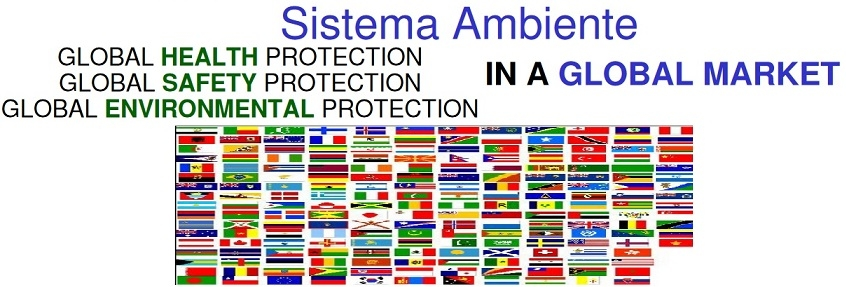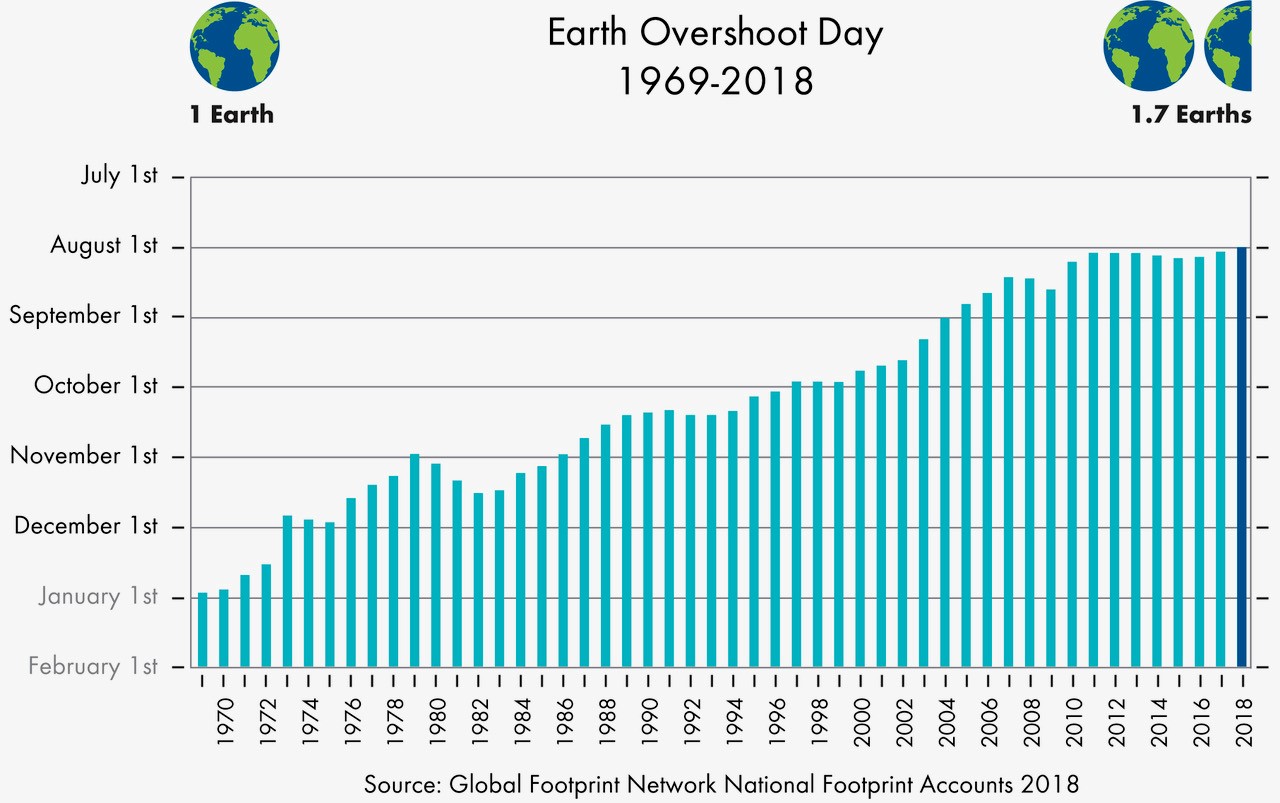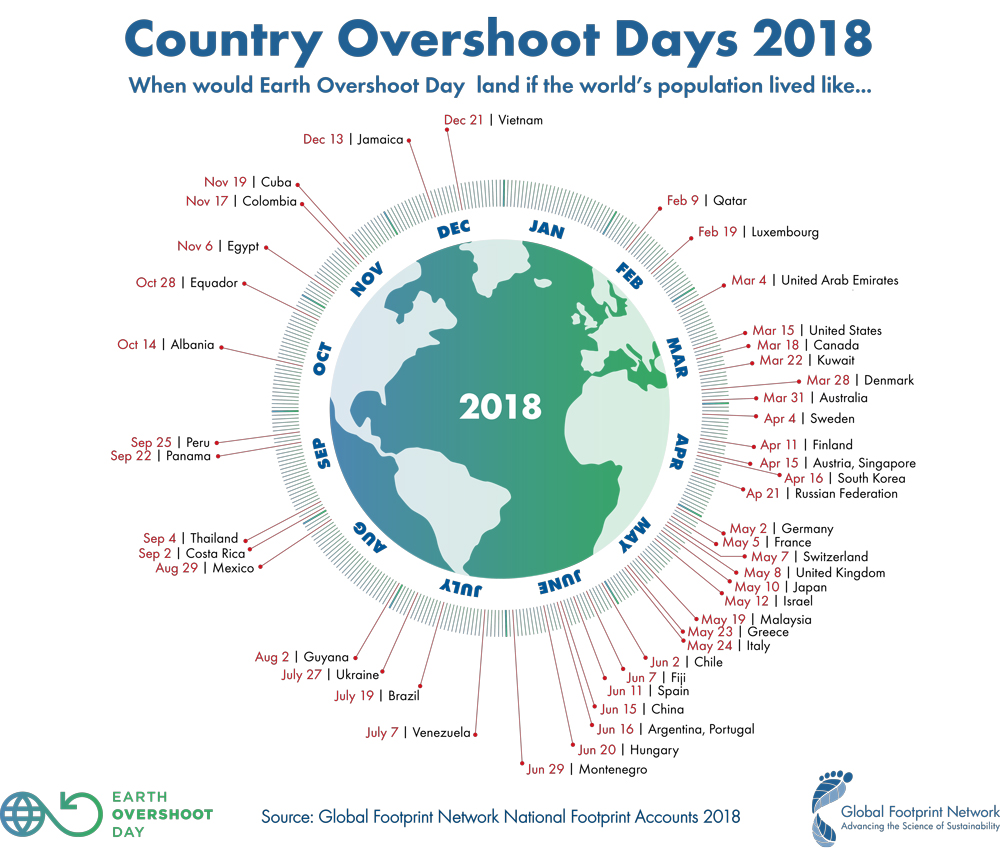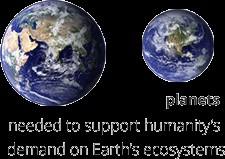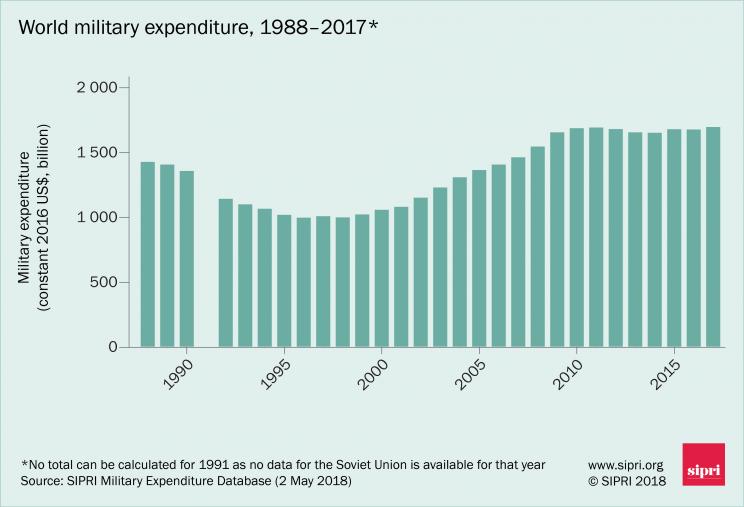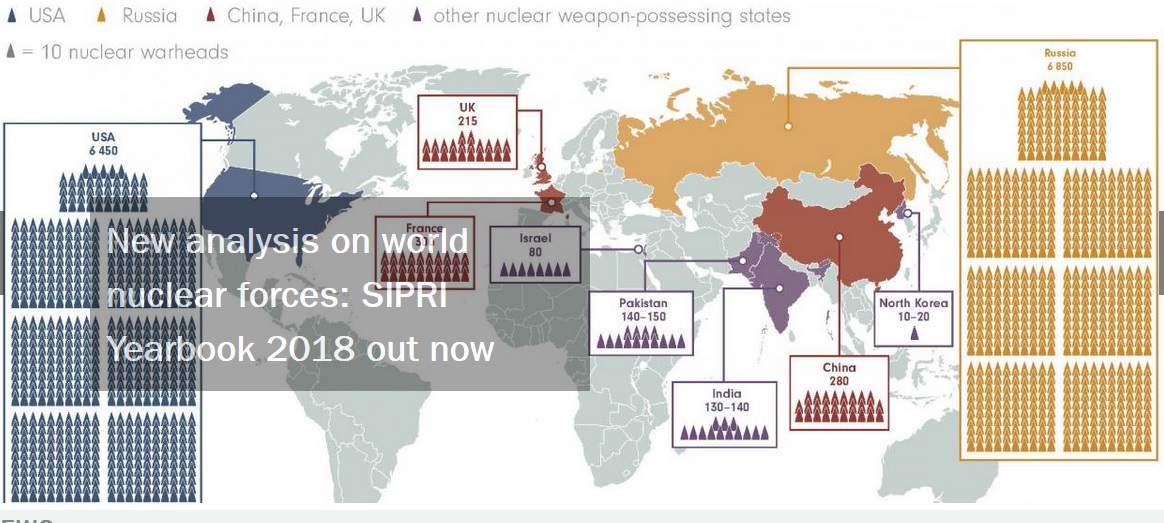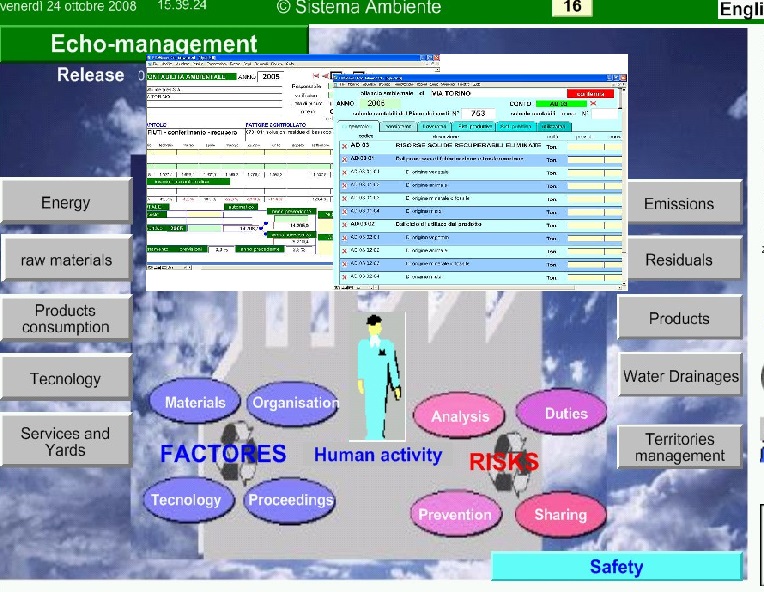|
|
|
||||||||||||||
|
Home <<
Contact <<
|
|||||||||||||||
|
THERE IS A LITTLE TIME TO CHANGE THE DEVELOPMENT: we must choose together |
|||||||||||||||
|
In 2018, Earth Overshoot Day is August 1. Earth Overshoot Day marks the day in which we (the whole humanity) have taken more natural resources than our planet can renew during the whole year. |
|||||||||||||||
|
We use the equivalent of 1.7 planets, but we only have 1. We use the resources and ecological services of the Earth 1,7 times more rapid than the nature can reproduce them; This owes to the over-fishing, the soil degradation, the over-exploitation of the forests, the pollutants to in the water and the emission of dioxide of carbon to the ambience in major quantities over of those that the ecosystems can absorb. |
|||||||||||||||
|
https://www.overshootday.org/newsroom/country-overshoot-days/
|
The consumption of every individual country is different: Countryh Equivalent ·
Italy 2,5 planets ·
French 3 planets ·
Germany
3 planets ·
China 2 planets ·
USA 4 planets ·
Vietnam 1 planet |
In 2018, what we already consume after August 1( (Earth Overshoot Day 2018) is not reproduced in our planet, but it represents an irreversible impoverishment of the resources that the humanity can have in the Earth, ,
taken away to our children and the following generations. |
|||||||||||||
|
It is calculated that 80 % of the world population move to the metropolis for the year 2050 and lives in the cities . According to recent estimations of the OIT, at present there are 258 million working migrants in the world. http://www.ilo.org/global/topics/labour-migration/publications/WCMS_436343/lang--en/index.htm
|
The Earth produces enough food for 7.000 million persons, nevertheless, 815 million persons (especially in Africa) suffer from famine. The local availability of food and the elimination of highly processed food can reduce the carbon trace. |
||||||||||||||
|
Almost 15 tons of materials are used in the EU every year for every person , while ogni cittadino UE genera una media di every citizen of the EU generates an average of more than 4,5 tons of residues to the year, of which almost the half they are jected in the dumps. To initiate aneconomy designed for self-regenerate, in which the biological materials are destined to be restored in the biosphere, and the technical materials must be designed to be revitalized without entering the biosphere |
The programmed obsoleteness is the industrial policy destined to define the life cycle (duration) of a product to limit its useful life to a fixed period: the product stops working after a certain period of time and turns out to be forced to change it. The product will be designed to last and to be an object of service, maintenance and innovation |
||||||||||||||
|
|
|
|
|
||||||||||||
|
The temperature world average increases to +1.5 grades compared to the preindustrial levels already in 2040 |
|||||||||||||||
|
A draft of the sixth report on the climate of the IPCC is was made known (Intergovernmental Group of experts on climate change) https://www.ipcc.ch/news_and_events/st_sr15_fgd.shtml/
|
|||||||||||||||
|
STOP THE GLOBAL HEATING OF THE CLIMATE: |
The agreement of Paris is a global agreement on the climate change that was reached on December 12, 2015 in Paris and was signed by 195 countries. It provides an action plan to limit the global warming "much underneath" of 2ºC for 2100.
(http://www.consilium.europa.eu/en/policies/climate-change/timeline/
) |
||||||||||||||
|
In this moment the sources of clean energy satisfy 19.2 % of the final consumption and 23.7 % of the electricity energy, ,
even if in this account the hydroelectric power is very heavy, while the renewable "new energy" affects "only" 6 % of the use. http://ec.europa.eu/eurostat/statistics-explained/index.php?title=Renewable_energy_statistics
Only the transport determines approximately half of the world consumption of oil. .
In the industrialized countries, the transport system reaches approximately a third of the entire consumption of energy. https://www.eia.gov/energyexplained/index.php?page=us_energy_transportation
|
In 2017, the European emission of dioxide of carbon produced by the combustion of fuels and fossil fuels increased a 1,8 % in the EU compared to 2016 +3,2%. http://ec.europa.eu/eurostat/web/products-press-releases/-/8-04052018-BP That of decarbonization of the economy is our only opportunity to tackle the climate change and to improve the balance with the renewable natural resources of the planet |
||||||||||||||
|
|
|||||||||||||||
|
|
|
|
|
|
|||||||||||
The global financial debt reached the number for 233 trillion dollars
or 325 % of the world GDP
|
|
||||||||||||||
The whole wealth produced by all the economies of the world in 3 years is necessary to pay the debt. The only existing wealth that we can have is the work of all.
https://www.zerohedge.com/news/2018-03-11/233-trillion-dollar-dark-cloud-global-debt
|
The current total of the loans has "been born" from 1997. Considering the entire world population, the debt per capita is 30 thousand dollars for every individual, including the newborn babies. Who will pay the debt? Our children and the following generations. The enormous debt has increased the social inequalities and between countries and generates more and more serious conflicts |
|
|||||||||||||
|
|
|
|
|
|
|||||||||||
|
Every 15 seconds, a worker and every day, 6.300 persons die in the work because of an accident or an occupational disease. Every 15 seconds, 153 workers have an accident in the work. http://www.ilo.org/global/topics/safety-and-health-at-work/lang--en/index.htm
|
|
||||||||||||||
|
The pollution is costly. The losses of wealth due to lthe contamination there is estimated
a in 4,6 trillion dollars for year, that is to say, 6,2 % of the world economic production. |
The modern forms of industrial pollution and transport earlier had never been seen. They include the air, chemical pollution and of the soil and the risk in the work place. |
|
|||||||||||||
|
http://gahp.net/wp-content/uploads/2017/03/PE_InfoLancetSummary.pdf |
|
||||||||||||||
|
|
|
|
|
|
|||||||||||
The world whole of military expenditure reached $ 1.739 billions in 2017,
an increase of 1.1 % compared to 2016
https://www.sipri.org/media/press-release/2018/global-military-spending-remains-high-17-trillion
|
|
||||||||||||||
|
The map of the nuclear forces in the world Military expenditures: |
|
||||||||||||||
|
TWO POSSIBLE ALTERNATIVES:
OR CHANGE OF MODEL OR DEVELOPMENT STOP |
|
||||||||||||||
|
Check and choose the most appropriate technologies |
Understand the solutions organizacionales more effective |
Identify the most dynamic systems |
Change quickly to compete |
|
|||||||||||
|
A shop window that has specialized during more than 40 years and that now offers all the technologies, teams and services for the environment and the industrial and urban energy, an authentic platform of throwing and meeting point for innovations and opportunities of international development, capable of accompany the transformation of the sustainable development. |
|
||||||||||||||
|
|
|
|||||||||||||
|
|
||||||||||||||
|
"SISTEMA AMBIENTE" IS THE INFORMATION AND MANAGEMENT SYSTEM
TO CROSS THE CHANGE |
|
http://www.sistemaambiente.net/Tesi/Implementation_of_a_QHSE_management_system_FENG_Meng_Ting.pdf
To go on from the squandering management (with its high costs both for the company and for the system) to a circular economy, a functional tool is needed that, in the model of "Sistema Ambiente", it is the environmental balance fed by the environmental accounting (the relative quantitative values the progress and the destination of the resources along the cycle of the material and the impact that they have in the system in which the company is inserted) and the industrial accounting. The making at company level allows to begin the balances of area and sector with a compound method. |
|
“Sistema
Ambiente”,the system of management of Digitalis, in addition to the utility of normal record and production of documents of treatment of residues, offers some important opportunities for a better waste processing organization. http://www.europarl.europa.eu/RegData/etudes/STUD/2017/581913/EPRS_STU%282017%29581913_EN.pdf |
|
The Environmental Balance also includes the calculation of the equivalent carbon: calculation that is prepared in every aspect of the cycle of production (the energy consumption in processes and products, the way of transport of the workpeople and the used one for materials and products, manufacture of the raw material, the residues produced by the processes and the end of the useful life of the products). The calculation is the base to understand how to modify the processes and to plan how to reduce the gas emission of greenhouse effect produced by the cycle. http://www.bilans-ges.ademe.fr/en/accueil/contenu/index/page/principles/siGras/0
|
